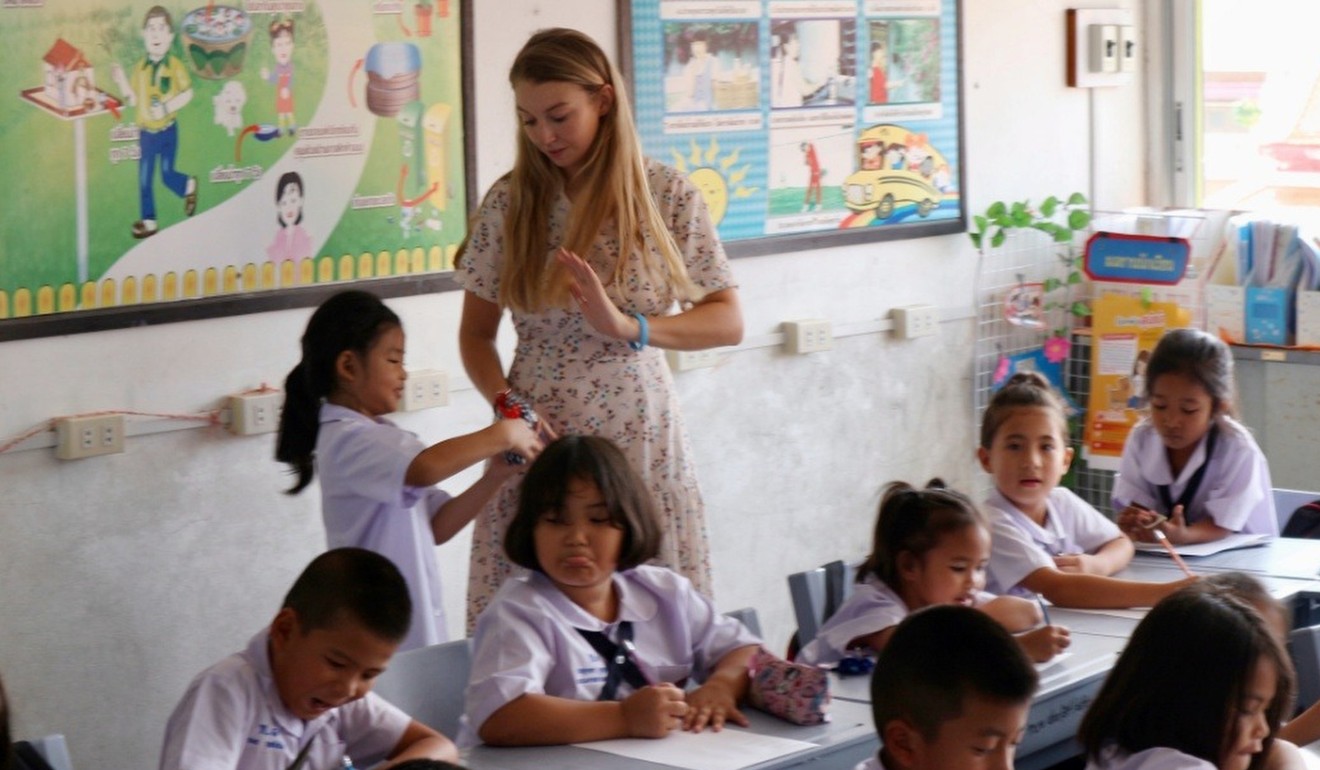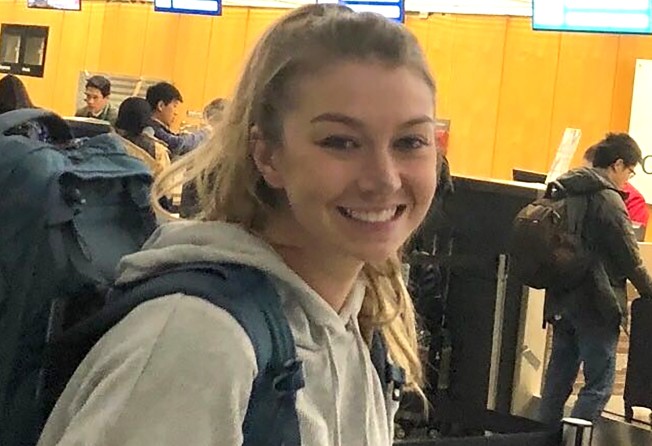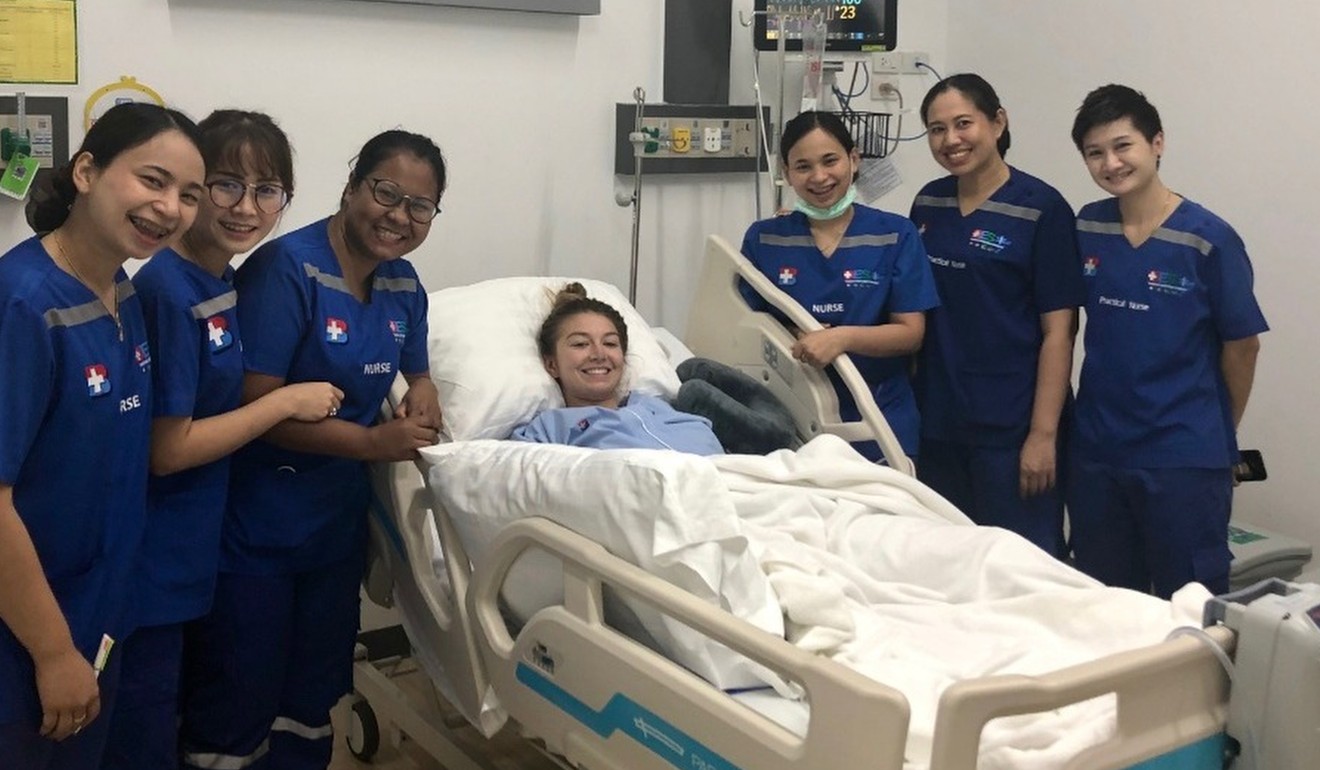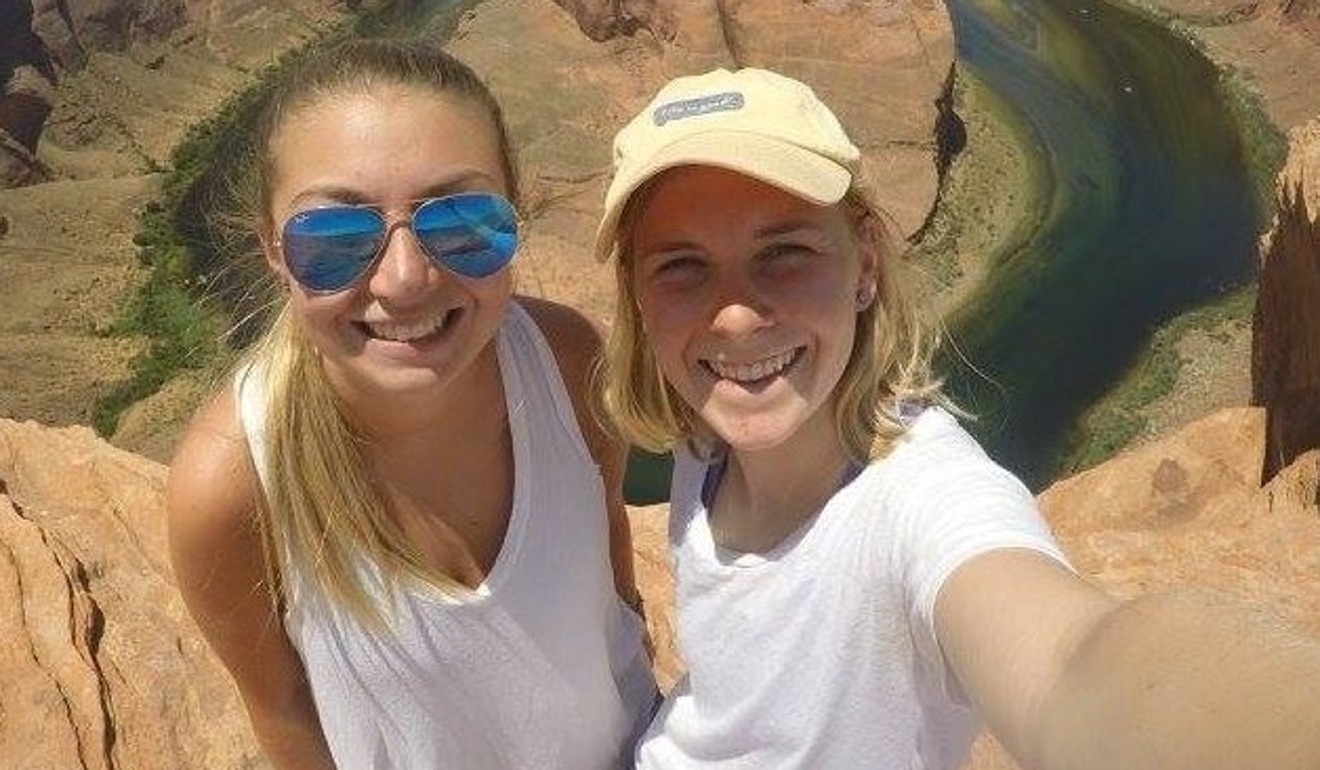
She woke up in Thailand paralysed but Caroline Bradner will be heading home after family raises US$76,000 online
- Guillain-Barre Syndrome affects an estimated one in 100,000 people and can cause widespread paralysis
- Bradner’s family started a GoFundMe account to raise funds to cover her medical care in Thailand, transportation home and rehabilitation in the US

When 22-year-old Virginia native Caroline Bradner woke up in Surat Thani, Thailand, on December 22, she could not move from the neck down.
A friend staying with Bradner helped her reach the local hospital, where she was diagnosed with Guillain-Barre Syndrome (GBS), an inflammatory autoimmune disorder which affects an estimated one in 100,000 people and can cause widespread paralysis. It can take months or years to recover.
Bradner, a recent graduate of University of Mississippi, had been living in Surat Thani on the east coast of Thailand’s southern peninsula teaching primary school English for two months when she started feeling weak. She visited the local hospital, where she had blood taken. She was given medication and sent home. When she woke the next morning, she was paralysed from the neck down.
“The problem with GBS is there are no definite markers that indicate what it is,” James Bradner, Caroline’s father, told the South China Morning Post. “You get symptoms that could be other things too. We’ve got to give them credit, the doctor pretty quickly had a good idea that was what the problem was.”

As the Bradners scrambled to figure out how they could bring Caroline back to the US, they found out her travel insurance company would not cover emergency transportation home. That’s when they decided to start a GoFundMe campaign to raise funds to cover the cost of her medical care in Thailand, transportation home and months of rehabilitation in the US.
In just two days, they reached their campaign goal of US$70,000. At the time of writing, the campaign had been running for three days and raised US$76,051. The money was raised almost entirely through donations less than US$100. The Bradners never expected such an outpouring of donations.
“We were blown away,” James said. “We didn’t come close to expecting this kind of response.”
The problem with GBS is there are no definite markers that indicate what it is
Friends of the family contacted local Virginia cable news affiliates. CBS first picked up the story and the rest followed. Soon Caroline’s story was on Fox News.
On the second day of the campaign, the insurance company let the Bradners know they would cover Caroline’s flight back to the US. The money raised online will cover the cost of Caroline’s care until she can leave Thailand and her rehabilitation in the US. The family has pledged any remaining funding will be donated to Guillain-Barre Syndrome Foundation International.
Caroline had been teaching through Xplore Asia, a programme which connects English language teachers with schools in Thailand. Her father said the school had been supportive throughout the ordeal. Thailand introduced universal health care coverage in 2001, and in some cases foreigners have to pay upfront for care if admitted to hospital.
Lisa Caponetto, a claims examiner for World Nomads Travel Insurance – which is not involved in Bradner’s case – explained that for many travellers and people abroad for temporary stays, travel insurance provides a backup to their primary insurance in their home nation. When a traveller submits a claim, it goes first to their primary insurance and the remainder to the travel insurance.
“For most people, the coverage is ... a safe haven for whatever their standard insurance doesn’t cover,” Caponetto said.

Although the cause of GBS is unknown, the Centre for Disease Control and Prevention reports its onset is typically triggered by an infection like the flu or food-borne illness from campylobacter bacteria. GBS causes the immune system to attack nerve cells, causing muscle weakness and paralysis. Most people recover fully from GBS, although some have lasting nerve damage. In very rare cases, people have died of GBS.
“That’s the frustrating part about this disease,” James said. “You don’t know how long it’s going to take to get better. Each person is affected differently.”

GBS can be treated by plasma exchange or immunoglobulin therapy. Caroline has received several courses of immunoglobulin therapy, her father said, and her condition has improved to the point she can open and close her hands. According to the Mayo Clinic, 80 per cent of adults recovering from GBS can walk independently six months after diagnosis.
Caroline’s mother, Lou, arrived in Surat Thani the day after Christmas to be with Caroline while she recovers. The family plan to transport her on a stretcher via commercial flight to the US in the coming weeks.
“She’s getting better each day,” James said. “It’s already a big improvement from where we were a week ago.”